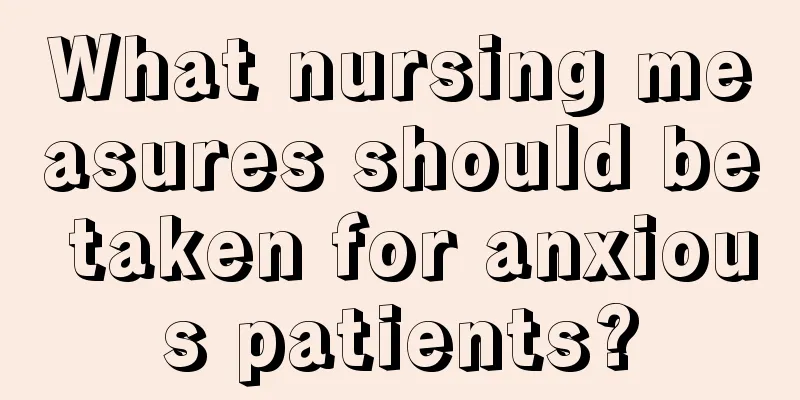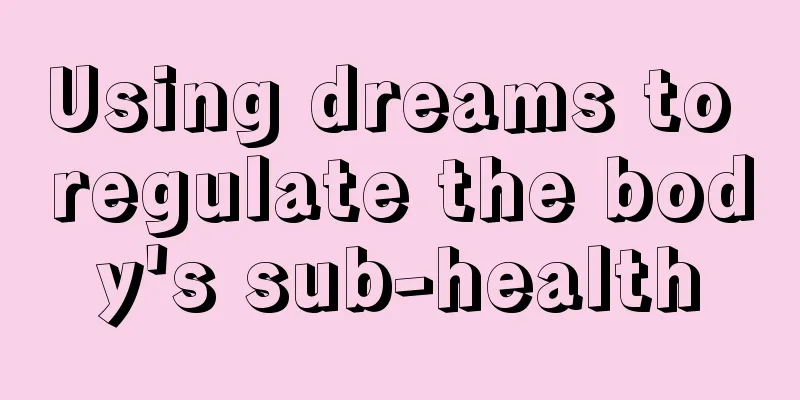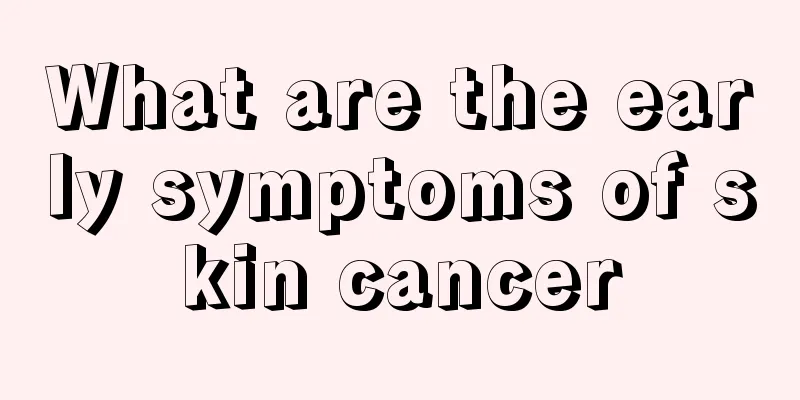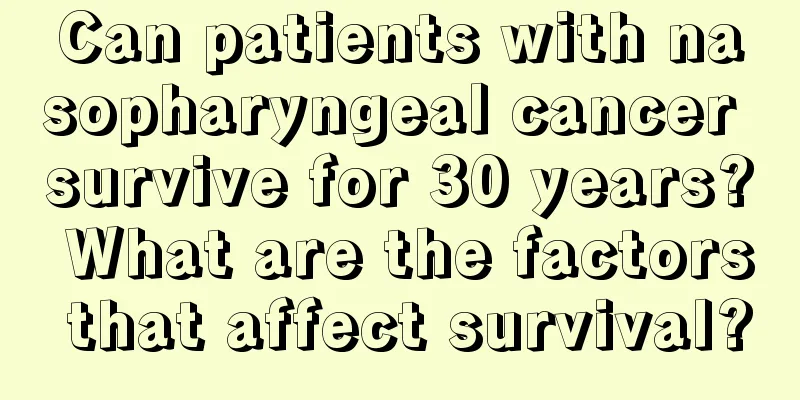What nursing measures should be taken for anxious patients?

|
Anxiety disorder is not unfamiliar to many people. Generally, there are many causes of anxiety disorder. Usually it may be caused by long-term excessive mental stress. Anxiety disorder is very harmful to physical health and can easily lead to some psychological diseases. In addition to treatment, timely care is also needed in daily life. Try to keep the room quiet and get in touch with more exciting things. Nursing measures for anxiety disorders 1. When the patient is severely anxious, he/she should be placed in a quiet and comfortable room to avoid interference. The surrounding facilities should be simple and safe. Therefore, anxiety care should preferably be carried out by a dedicated person; 2. Closely observe changes in physical condition and record them. When the patient's emotions are stable, psychological care should be provided to the patient without delay to comfort and calm the patient's emotions; 3. For patients with physical illnesses, it is necessary to explain to them that intense emotions will have adverse effects on the body, so that patients can control their emotional reactions subjectively. Pay attention to close monitoring of vital signs; 4. For elderly patients with serious physical diseases, in addition to close monitoring, they should also adjust their diet structure, increase nutrient intake, and increase calcium supplementation to prevent fractures; 5. Use good nursing communication skills at ordinary times, pay attention to listening to the patient's complaints, and allow the patient to express his emotions in moderation. To prevent bad emotions from outbursts and affecting physical health. Pathological anxiety Clinical manifestations 1. Panic disorder The symptoms of panic disorder are spontaneous, recurrent, and unpredictable attacks of acute anxiety accompanied by a distinct sense of impending doom. Typical clinical symptoms of panic attacks include: 1. Psychiatric symptoms of panic attacks The first attack often occurs suddenly and spontaneously. The typical mental experience of a panic attack has three manifestations: (1) Sense of impending death: This is often a characteristic symptom of a panic attack. The patient suddenly experiences chest tightness, chest pressure, a feeling of suffocation, fear and tension of being unable to breathe independently, and even shouting because he feels death is approaching. He often involuntarily runs to the window, pushes open the doors and windows, and lets air into the chest cavity. (2) Sense of loss of control: Some people experience extreme mental tension, anxiety about losing control, or fear of going crazy. (3) Feeling of mental breakdown: Some patients experience the onset of an uncontrollable mental breakdown. Regardless of the experience, patients who have had such an attack have extreme fear and anxiety about having another attack. 2. Physical symptoms of panic attacks The physical symptoms of panic attacks are mainly manifested as symptoms of sympathetic overexcitation, and the common clinical symptoms include: Circulatory system: increased heartbeat, palpitations, panic and sweating; Respiratory system: chest pressure, shortness of breath, chest pain, discomfort, throat blockage; Digestive system: nausea and vomiting, abdominal distension, diarrhea, abdominal pain; Nervous system: Floating, dizziness, feeling hot or cold, numbness, tingling, tremors; Others: feelings of depersonalization or derealization, etc. The disease often attacks suddenly, with symptoms reaching a peak rapidly within 10 to 30 minutes, lasting for a short time and ending suddenly. Attacks rarely last more than an hour. 2. Generalized anxiety disorder Generalized anxiety disorder is characterized by chronic, diffuse, excessive and unrealistic worry and anxiety about certain life situations. It is often manifested as persistent mental tension accompanied by dizziness, chest tightness, palpitations, dyspnea, dry mouth, frequent urination, urgency, sweating, tremors and motor restlessness. But it is not caused by actual threats or dangers, and the level of tension is disproportionate to real events. The clinical manifestations mainly include three groups of symptoms: mental anxiety, physical anxiety and motor restlessness. 1. Psychological anxiety It manifests as excessive and persistent anxiety and worry about everyday trivial matters. The pain of anxiety is mentally experienced as excessive worry and fear about future-oriented or uncertain events, or worry about disasters, accidents or uncontrollable events, such as worrying about family illness, children's accidents, mistakes at work, small financial problems, interpersonal relationships, etc. It is also called anticipatory anxiety, and its content can vary. Mental anxiety may be accompanied by changes in sleep, insomnia, nightmares, difficulty concentrating, decreased work efficiency, irritability, and restlessness. |
<<: What are the nursing diagnosis measures for COPD?
>>: What is the knowledge about hair care?
Recommend
Can nerve pain be cured?
Even today when modern medicine is so advanced, t...
Nursing care for patients with nasopharyngeal carcinoma undergoing radiotherapy
It depends on the recurrence. According to statis...
When is the best time to dehumidify?
Most people usually have moisture in their bodies...
Can breast cancer patients eat yam? What are the precautions for breast cancer patients
Breast cancer patients can eat some yam. Breast c...
Can ordinary brain CT scan detect brain cancer?
Intracranial malignant tumors include gliomas, ma...
How much does it cost to treat uterine cancer 2a
Endometrial cancer is one of the malignant tumors...
How to preserve fresh Tremella
Tremella is a food with relatively high nutrition...
What effect does linoleic acid have on the human body
Linoleic acid is a fatty acid. I believe that mos...
Which foods can prevent bile duct cancer
Food supplements are worse than medicine suppleme...
Hilar lymph node metastasis
When lymphoma occurs in a person's body, it i...
I feel like there is something blocking my anus. Is it hemorrhoids?
If you feel that there is something blocking your...
What is visual fatigue and what causes it
If you experience visual fatigue in your life, yo...
How long does it take to whiten your face by washing it with white vinegar
Brushing teeth and washing face are things that e...
How to care for baby's facial eczema
Babies sometimes develop eczema on their faces. I...
What to put in a new home to remove formaldehyde_What to put in the home to remove formaldehyde
After the new house is renovated and the furnitur...
![Learn something new! [Wearing glasses will make your eyes smaller?] How to solve it?](/upload/images/67cf0ce3b9df6.webp)








